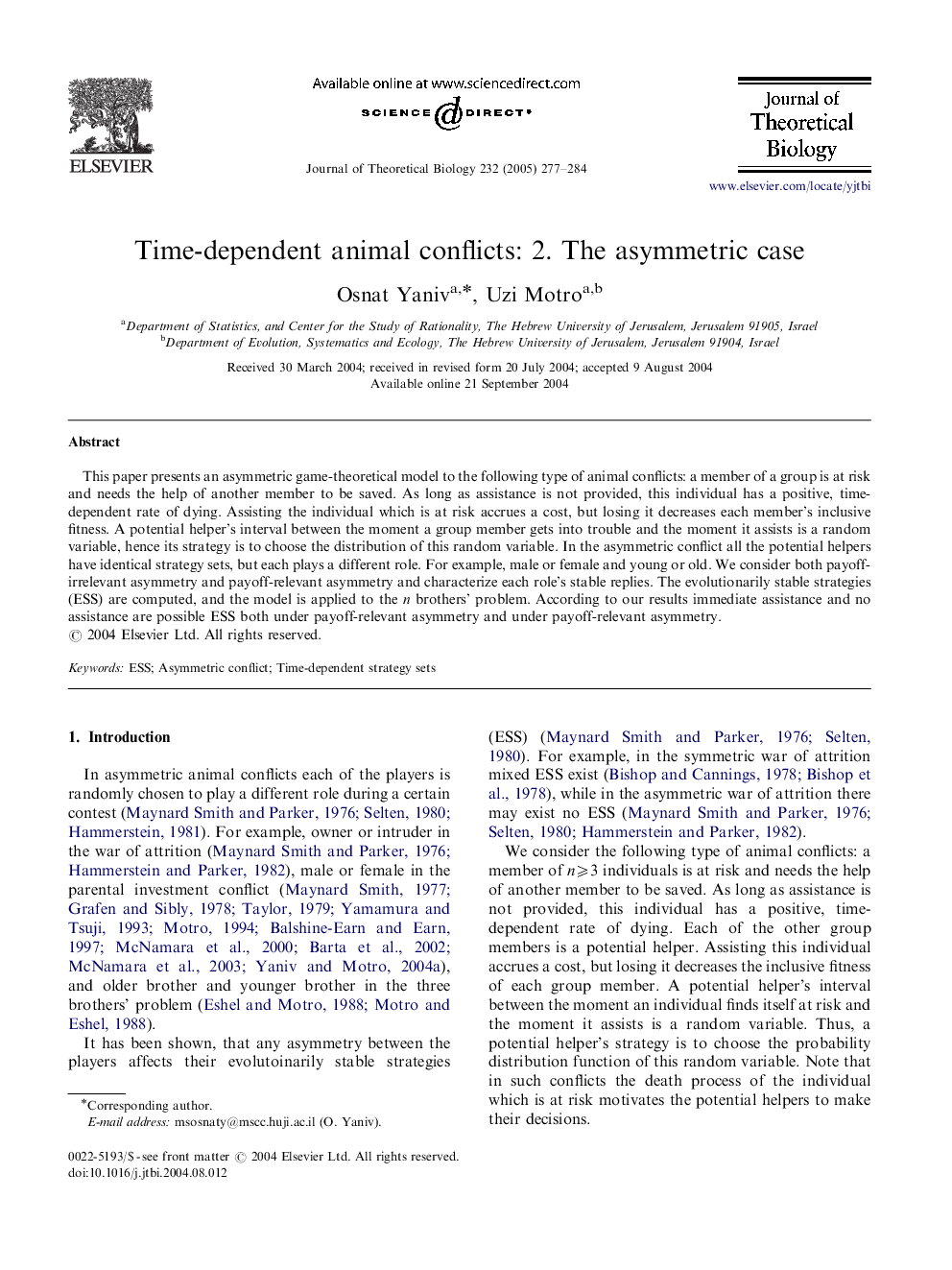| Article ID | Journal | Published Year | Pages | File Type |
|---|---|---|---|---|
| 9469636 | Journal of Theoretical Biology | 2005 | 8 Pages |
Abstract
This paper presents an asymmetric game-theoretical model to the following type of animal conflicts: a member of a group is at risk and needs the help of another member to be saved. As long as assistance is not provided, this individual has a positive, time-dependent rate of dying. Assisting the individual which is at risk accrues a cost, but losing it decreases each member's inclusive fitness. A potential helper's interval between the moment a group member gets into trouble and the moment it assists is a random variable, hence its strategy is to choose the distribution of this random variable. In the asymmetric conflict all the potential helpers have identical strategy sets, but each plays a different role. For example, male or female and young or old. We consider both payoff-irrelevant asymmetry and payoff-relevant asymmetry and characterize each role's stable replies. The evolutionarily stable strategies (ESS) are computed, and the model is applied to the n brothers' problem. According to our results immediate assistance and no assistance are possible ESS both under payoff-relevant asymmetry and under payoff-relevant asymmetry.
Keywords
Related Topics
Life Sciences
Agricultural and Biological Sciences
Agricultural and Biological Sciences (General)
Authors
Osnat Yaniv, Uzi Motro,
